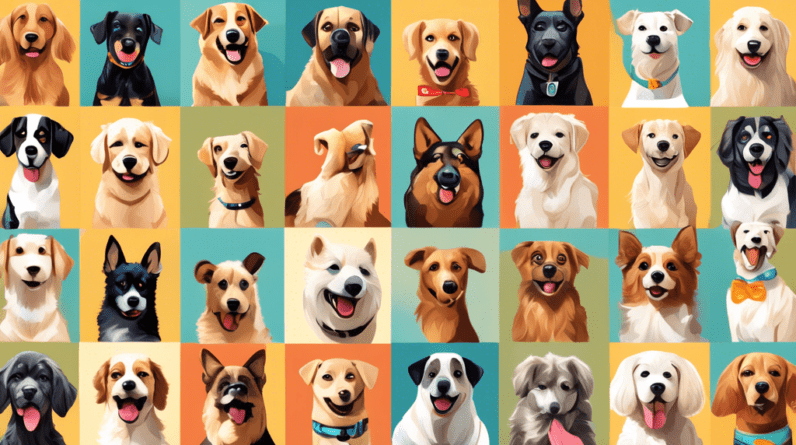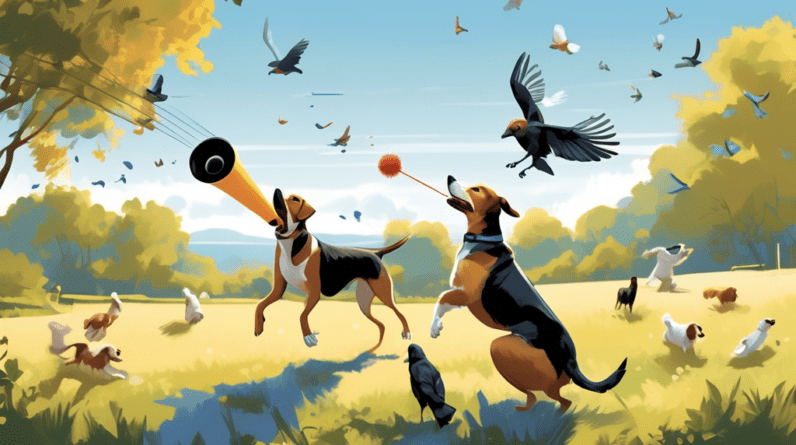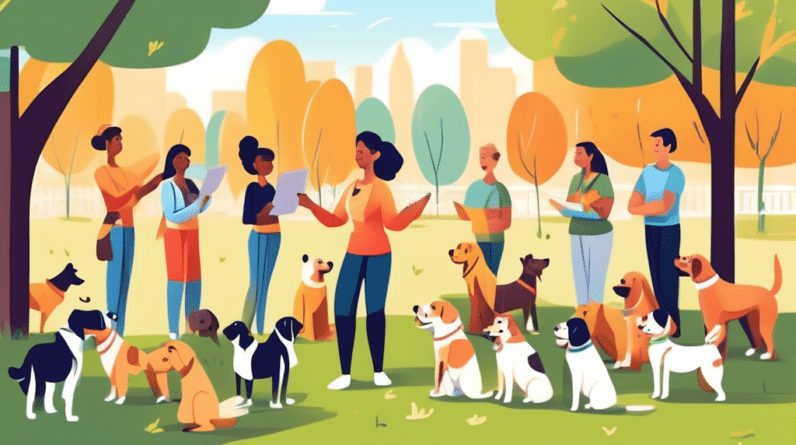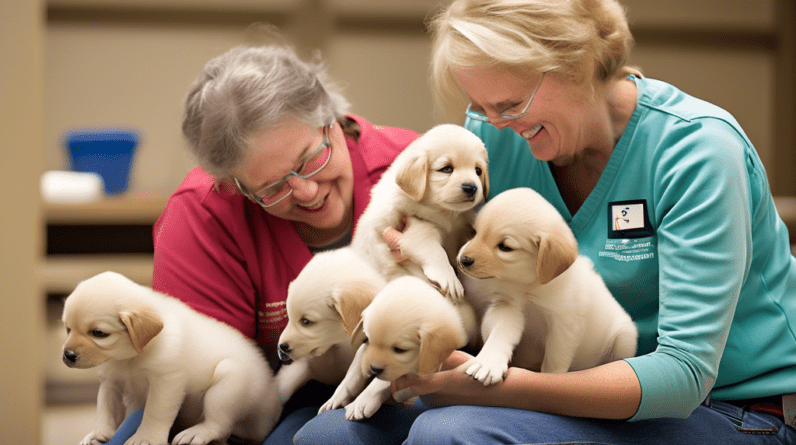
Looking for an Eager Canine Student? Top 10 Easiest Dog Breeds to Train at Home
Bringing a new dog into your life is an incredibly rewarding experience, filled with love, laughter, and of course, a bit of learning! While all dogs are capable of learning, some breeds are renowned for their trainability, making them ideal companions for both first-time and experienced dog owners. If you’re looking for a canine Einstein who thrives on learning new tricks and commands, look no further. Here are 10 dog breeds that are known for being easy to train at home:
1. Border Collie: The Valedictorian
The Border Collie consistently tops the charts when it comes to trainability. Originally bred to herd sheep, these brilliant dogs possess an exceptional work ethic, unwavering focus, and an eagerness to please that makes training a breeze. They excel at obedience, agility, and any activity that challenges their sharp minds.
Training Tip: Channel their boundless energy with interactive games and puzzle toys to keep them mentally stimulated.
2. Poodle (Standard, Miniature, and Toy): The Gifted Student
Don’t let their elegant appearance fool you; Poodles are incredibly intelligent dogs with a history in both hunting and water retrieval. They learn quickly and are eager to show off their new skills. Their hypoallergenic coats and varying sizes make them a versatile breed for many types of homes.
Training Tip: Poodles can be sensitive, so use positive reinforcement techniques like praise and treats for the best results.
3. German Shepherd: The Dedicated Scholar
Loyal, courageous, and highly intelligent, German Shepherds are often the top choice for working roles in law enforcement and search and rescue. Their devotion to their owners, combined with their natural intelligence, makes them remarkably trainable.
Training Tip: Early socialization is crucial for German Shepherds. Expose them to various people, places, and situations to help them grow into well-adjusted companions.
4. Golden Retriever: The Cheerful Learner
The Golden Retriever’s friendly demeanor, love for people, and inherent intelligence have secured its spot as one of the most popular dog breeds. They excel at obedience training and thrive in environments where they can learn and play with their family.
Training Tip: Golden Retrievers are highly food motivated, so use small, healthy treats as rewards during training sessions.
5. Labrador Retriever: The Enthusiastic Participant
Much like their Golden Retriever cousins, Labrador Retrievers are known for their friendly personalities and eagerness to please. Their intelligence and love for learning make them excellent candidates for obedience training, and they also excel at retrieving games.
Training Tip: Labrador Retrievers are prone to obesity, so keep training sessions active and monitor their treat intake.
6. Shetland Sheepdog: The Petite Prodigy
Don’t underestimate the Shetland Sheepdog’s small size; these herding dogs are incredibly intelligent and learn commands with impressive speed. They form strong bonds with their families and are known for their alertness and responsiveness.
Training Tip: Shelties can be prone to barking, so teaching them a quiet command early on is essential.
7. Papillon: The Tiny Whiz
This toy breed may be small, but the Papillon boasts a big personality and impressive intelligence. They are quick learners, eager to please, and excel at obedience and agility training. Their playful and affectionate nature makes them wonderful family companions.
Training Tip: Papillons can be sensitive to harsh training methods, so stick to positive reinforcement and keep training sessions fun and engaging.
8. Doberman Pinscher: The Focused Pupil
Known for their elegance and loyalty, Doberman Pinschers are highly intelligent dogs that thrive on mental and physical stimulation. They learn commands quickly and excel in obedience training. Early socialization is essential to ensure they are well-mannered around strangers and other dogs.
Training Tip: Doberman Pinschers are sensitive dogs, so use positive reinforcement techniques and avoid harsh corrections.
9. Brittany: The Eager Retriever
Originally bred as hunting dogs, Brittanys are intelligent, energetic, and eager to learn. They are quick to pick up new commands and thrive on activities that challenge their minds and bodies. Their affectionate and playful nature makes them wonderful family pets.
Training Tip: Brittanys need plenty of exercises, so incorporate games and activities into their training routines.
10. Rottweiler: The Loyal Protector
Often misunderstood, Rottweilers are highly intelligent and loyal dogs that are more than capable of excelling in training. Their protective instincts and strong work ethic make them quick learners when it comes to obedience training. Early socialization and consistent training are key to raising a well-adjusted Rottweiler.
Training Tip: Rottweilers respond best to firm but fair training. Establish clear rules and boundaries and use positive reinforcement to motivate them.
Tips for Successful At-Home Dog Training
No matter what breed you choose, consistency and positive reinforcement are key to successful dog training:
- Start Early: Begin training your puppy as soon as you bring them home. Even basic commands like sit and stay can be introduced early on.
- Keep it Positive: Use positive reinforcement techniques like praise, treats, and toys to motivate your dog. Avoid punishment-based methods, as these can damage your bond and hinder learning.
- Be Patient and Consistent: Training takes time and patience. Don’t get discouraged if your dog doesn’t pick up a command immediately. Stay consistent with your training schedule and commands.
- Make it Fun: Training should be an enjoyable experience for both you and your dog. Use games, toys, and plenty of praise to keep your dog engaged and motivated.
- Seek Professional Help: Don’t hesitate to seek help from a certified dog trainer if you’re struggling with training or if your dog is exhibiting behavioral issues.
Remember, every dog is an individual, and some may learn faster than others. The key is to be patient, understanding, and to tailor your training approach to your dog’s personality and learning style. With love, dedication, and the right training techniques, you can help your furry friend reach their full potential and build an unbreakable bond based on trust and companionship.






